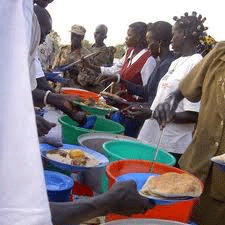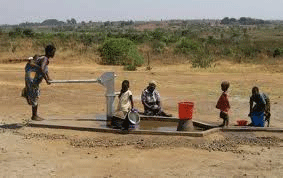TODAY, when we think of household environmental conservation it is common for three things to come to mind – water, energy and waste. Indeed, these are all integrally connected to our everyday life and how we utilize them usually has consequences for the environment.  Managing how we use energy and water is very much linked to our pockets – since we pay electricity and water bill. However, when it comes to how we manage our waste we do not always see that link and therefore, most times, we tend not to be very much concerned.
Managing how we use energy and water is very much linked to our pockets – since we pay electricity and water bill. However, when it comes to how we manage our waste we do not always see that link and therefore, most times, we tend not to be very much concerned.
Managing how much waste we produce and how we dispose of it is very important in our efforts to be environmentally friendly. Landfills are generally a good step towards waste management as they allow for the collection of garbage at a central point which allows us to better manage health risks and the aesthetics of our city. However, landfills utilize land and are costly to develop and manage. If we are to reduce the amount of waste we ultimately send to the landfill, the longer that landfill site could be utilized freeing up much needed land and money for other important purposes. We need to ask ourselves, how can we reduce the amount of garbage we send to our landfill? 
Composting is one answer. Composting is a process that allows organic materials such as yard and kitchen waste to be broken down naturally and converted into a valuable soil additive. Composting has been going on without human help for millions of years. When people compost they help to manage the amount of waste they produce. The average household waste comprises about one quarter of organic material – waste from plants such as food scraps, vegetable peels, spoiled fruits and greens, paper towels, etc. The plant waste is good compost material which may end up being burnt or taken to the dumpsite or landfill.
Backyard composting conserves on the energy it takes to transport your yard trimmings to the landfill. The finished compost product can be spread on the soil to make it richer in organic matter. Although composting requires no container, you can confine a compost heap in several ways including digging a pit or placing the materials to be composted into a perforated drum or other container. The most important aspect of composting is to ensure the right balance of environmental conditions for rich organic matter – air, heat and moisture.
Making the compost heap
The following items can be composted:
Egg shells, fruits and vegetables peels, ground coffee and tea bags, cardboard rolls, bread crusts and leaves and yard trimmings. A good tip is to cut/tear these materials into small pieces before throwing them into your compost as this would help to speed up the decomposition process.
What to keep out!
The following items are to be avoided when making your compost heap:
• Coal or charcoal ash
o Might contain substances harmful to plants
• Dairy products (e.g., butter, milk, sour cream, yogurt) and eggs
o Create odor problems and attract pests such as rodents and flies
• Diseased or insect-ridden plants
o Diseases or insects might survive and be transferred back to other plants
• Fats, grease, lard, or oils
o Create odor problems and attract pests such as rodents and flies
• Meat or fish bones and scraps
o Create odor problems and attract pests such as rodents and flies
• Yard trimmings treated with chemical pesticides
o Might kill beneficial composting organisms
Composting is a great way to get the entire family involved in an environmentally friendly action which can yield nutrient-rich compost that can be used in your garden or sold locally.
You can share your ideas and questions by sending letters to: “Our Earth, Our Environment”, C/O EIT Division, Environmental Protection Agency, Ganges Street, Sophia, GEORGETOWN or email us at eit.epaguyana@gmail.com




.png)









